Great Transitions: Doubling Down on the Sustainable Development Goals
Posted on December 7, 2020.
The Covid-19 pandemic has exposed the world’s extraordinary fragility and highlighted trenchant societal inequalities. Managing the pandemic has been hard enough and doing so while addressing other urgent stresses – like climate change, discrimination and violence – has added to the difficulty. The challenge is further heightened in the face of what may soon become recurrent interlocking patterns of environmental, economic, and social disruption.
What should be done to move forward? How can the world find a way out of this difficult situation?
These were the questions tackled by participants in 17 Rooms 2020, a yearly convening of leading experts and practitioners brought together by the Brookings Institution and The Rockefeller Foundation to channel ideas and energy into actions for the Sustainable Development Goals (SDGs). A clear consensus from this year’s convening was that the SDGs are more relevant than ever, and should be used as a “North Star” to guide action out of the Covid-19 crisis.
Read more and download the report by the 17 Rooms Secretariat.
PRESS RELEASE: Adara Development appoints Madeline Vaughan as new CEO
Posted on December 3, 2020.
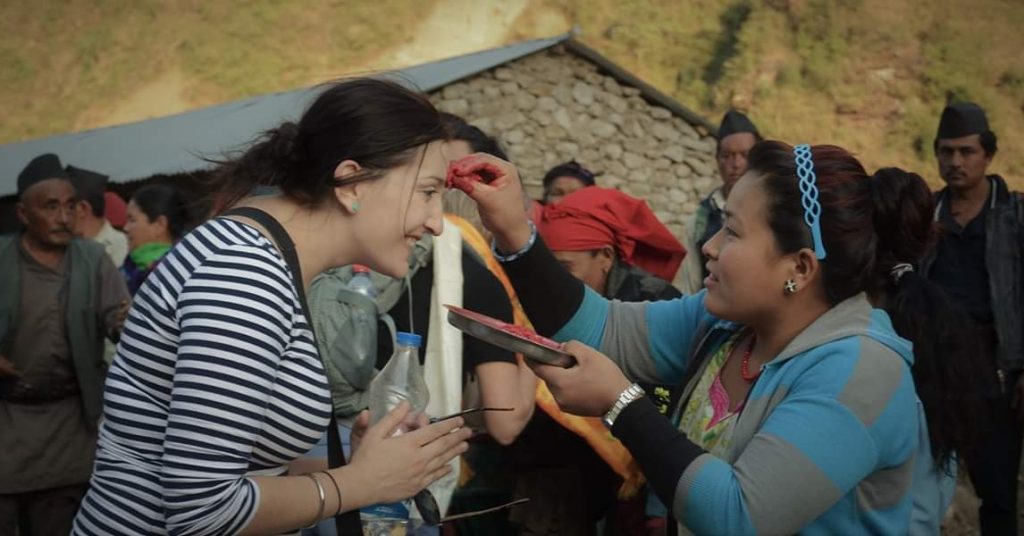 Adara Development is delighted to announce the appointment of Madeline Vaughan as its new CEO, effective 1 January 2020.
Adara Development is delighted to announce the appointment of Madeline Vaughan as its new CEO, effective 1 January 2020.
Madeline joined Adara eight years ago and has been an integral member of the organisation’s Global Leadership Team. Most recently, Madeline was Senior Programmes Director working across Adara’s maternal, newborn and child health and remote community development programmes.
Continue Reading
SDG17 (Rethinking) Partnerships for the Goals
Posted on December 2, 2020.
By Corrina Grace, Partners Asia Social Innovator
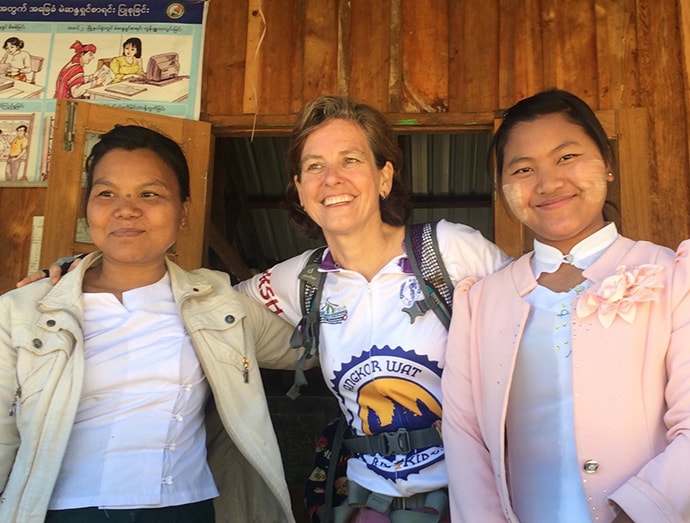
Therese Caouette, center, poses with teachers from a village school in Chin State, while on a bike trip with Partners Asia in western Myanmar. A longtime Seattle resident, Caouette plays a critical role in shaping Partners Asia and advocating for trust-based philanthropy. Photo credit: Tim Schottman/Partners Asia.
It could be argued that SDG17 (Partnerships for the Goals) is the most important of the UN’s 17 Sustainable Development Goals. The complex and interdependent nature of the challenges we face in the world will not be solved by any one individual, organization, or government alone. There is not a single solution that can be scaled or a transformative public policy to be implemented that can get us to where we need to be. As the voices of the People’s Climate Movement have been crying out for years: “To change everything, it takes everyone.” Achieving the Global Goals and meeting the ambitious 2030 Sustainable Development Agenda will require strong partnerships and collective actions that bridge across traditional boundaries such as race, religion, class, gender, and geography. It also required recognition that not all partnerships have been created equally.
Continue Reading
Tackling SDG10 Means Shifting Power and Profits
Posted on November 30, 2020.
By Irit Tamir, Director of Oxfam America’s Private Sector Department
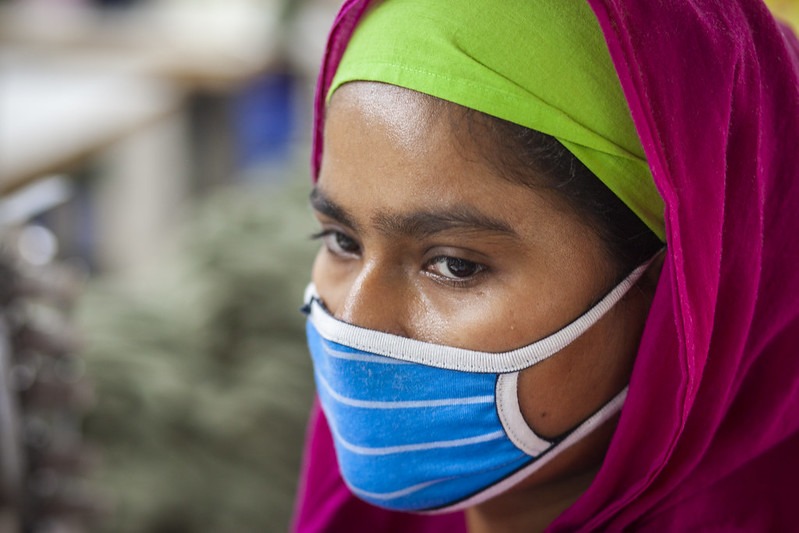
An apparel worker in Dhaka wears a face covering and maintains social distance from other workers as garment factories reopened amid the Covid-19 pandemic. Photo: UN Women/Fahad Abdullah Kaizer via Flickr (CC BY-NC-ND 2.0)
COVID-19 has laid bare the deep inequalities our economic model has fostered and thus is a major threat in achieving the UN Sustainable Development Goals, particularly SDG 10 (reducing inequalities). Business has a role to play in achieving SDG 10—but a recent Oxfam report highlights how big corporations are exacerbating rather than reducing inequality.
While the global pandemic saw devastating jobs losses of 400 million, nearly have a billion people are expected to be further pushed into poverty. But not everyone is losing out – billionaires have seen their incomes rise as shares in big corporations saw their profits jump. Power, Profits and the Pandemic: From corporate extraction for the few to an economy that works for all found five ways in which corporations are exacerbating inequality.
Continue reading this article on our Goalmakers Blog.
Tackling SDG10 Means Shifting Power and Profits
Posted on November 11, 2020.
By Irit Tamir, Director of Oxfam America’s Private Sector Department
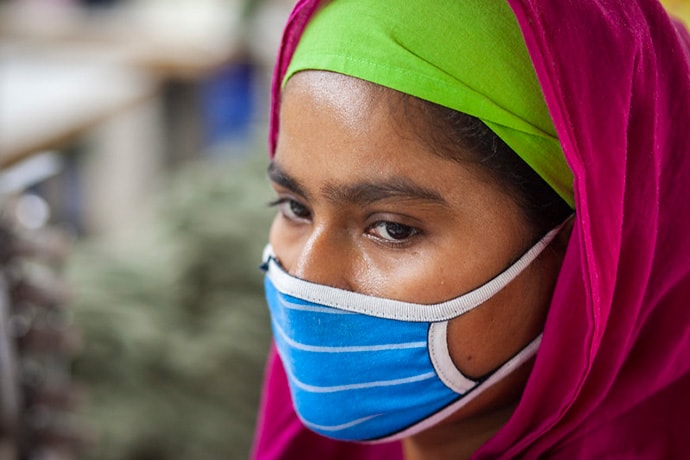
An apparel worker in Dhaka wears a face covering and maintains social distance from other workers as garment factories reopened amid the Covid-19 pandemic. Photo: UN Women/Fahad Abdullah Kaizer via Flickr (CC BY-NC-ND 2.0)
COVID-19 has laid bare the deep inequalities our economic model has fostered and thus is a major threat in achieving the UN Sustainable Development Goals, particularly SDG 10 (reducing inequalities). Business has a role to play in achieving SDG 10—but a recent Oxfam report highlights how big corporations are exacerbating rather than reducing inequality.
Continue Reading
Rebuilding and Transitioning to More Equitable Global Systems After COVID-19
Posted on October 27, 2020.
By Kristen Dailey, Executive Director of Global Washington
In their annual Goalkeepers Report, Bill and Melinda Gates noted that after decades of progress toward the Sustainable Development Goals, progress has stalled, and we are in fact going backwards on nearly all of the indicators.
We are now in a situation where we need to restart and rebuild systems and solutions to get the SDGs back on track. However, we should not rebuild in a way that takes us back to the status quo. We have an opportunity to transition into something better. Something that is more innovative, cross-sectoral, and most importantly, more equitable.
Continue Reading
Zero Hunger – What Would It Look Like and How Do We Get There?
Posted on October 27, 2020.
By Mark Ritchie, President of Global Minnesota
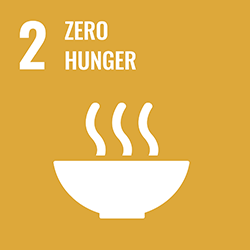 Every year, on October 16th, people around the world take time to observe World Food Day, commemorating the creation by the United Nations of the Food and Agriculture Organization (FAO). This year Global Minnesota organized a day-long virtual symposium under the theme “Countdown to Zero Hunger in 2030.” We focused on forging the new partnerships needed to accelerate our progress on Sustainable Development Goal #2 – Zero Hunger.
Every year, on October 16th, people around the world take time to observe World Food Day, commemorating the creation by the United Nations of the Food and Agriculture Organization (FAO). This year Global Minnesota organized a day-long virtual symposium under the theme “Countdown to Zero Hunger in 2030.” We focused on forging the new partnerships needed to accelerate our progress on Sustainable Development Goal #2 – Zero Hunger.
This happens to be the 75th anniversary year of the UN and the FAO, both launched right after World War II, in 1945. On the 50th anniversary of both of these vital global institutions a coalition of groups, coordinated by the Institute for Agriculture and Trade Policy, gathered the surviving founders of the UN and the FAO to both honor them and to learn as much as we could about their motivations, their hopes and dreams, and how they saw the outcomes after 50 years. We gathered in the original settings – the Opera House in San Francisco and the Chateau in Quebec City, to recreate as best we could the original atmosphere and context. Without exception, the speakers opened and closed their remarks with the reminder that they had seen two World Wars, and a Great Depression that came out of the first and led to the second, so their motivations were simply stated – to prevent and if possible to survive a third world war. The cruelty of nuclear holocaust was visible to all as they gathered to forge a new world order.
Continue Reading
PRESS RELEASE: Sultan Latif has joined Save the Children as Director of the Humanitarian Climate Crisis Unit (HCCU)
Posted on September 22, 2020.
In celebration of #ClimateWeek, we’re pleased to announce that Sultan Latif has joined Save the Children as Director of the Humanitarian Climate Crisis Unit (HCCU). The unit was made possible by generous seed funding from our long-term partner, Hau’oli Mau Loa Foundation. Thanks to their support, we are adapting to the new realities of humanitarian work by focusing on the impact that #climatechange and extreme weather events have on children’s lives.
Continue Reading
Statement from Global Washington Executive Director, Kristen Dailey, on the passing of Bill Gates Sr.
Posted on September 16, 2020.
September 16, 2020
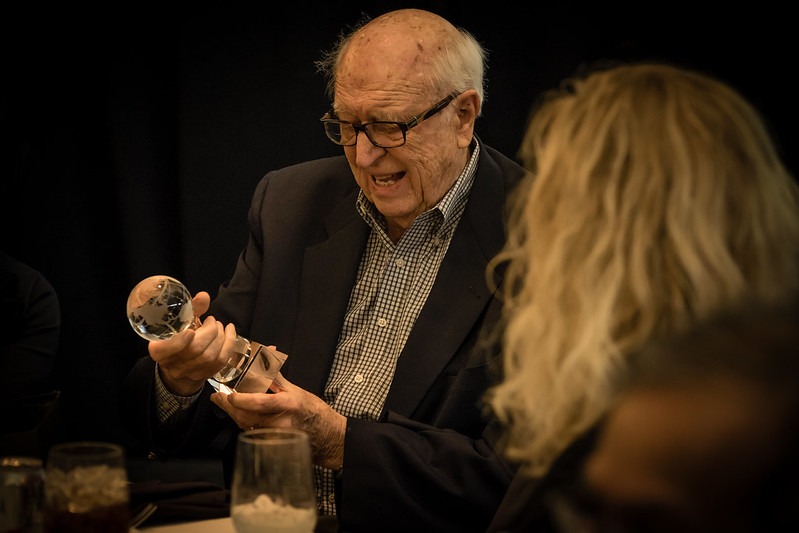
Bill Gates Sr. holding the Global Hero award, presented by Global Washington on December 10, 2015.
My deepest condolences go out to the Gates family this week and in the days to come. Bill Gates Sr. was instrumental in the founding of Global Washington nearly 14 years ago. In fact, our founding Board Chair, Bill Clapp, met with him around a dinner table, together with Akhtar Badshah, who was then leading Microsoft Philanthropies, to muse about the growing significance of global development expertise in the Seattle area. Centering and promoting global health and development became the mission of Global Washington thanks to the support of visionaries such as Bill Gates Sr. Ours is just a small part of the enormous legacy he leaves behind in our community and around the world.
PRESS RELEASE: COVID-19: Children From Poorest Households Had Greatest Financial and Education Loss, Highest Risk of Violence at Home
Posted on September 10, 2020.
Save the Children conducts largest global survey of children and families during COVID crisis
FAIRFIELD, Conn. (Sept. 9, 2020)—The COVID-19 pandemic has had a devastating impact on the education of children from poorer backgrounds and is widening the gap between rich and poor and boys and girls, a new global survey by Save the Children revealed today. In the six months since the pandemic was announced, the most vulnerable children have disproportionately missed out on access to education, healthcare, and food and suffered the greatest protection risks.
Continue Reading




 Every year, on October 16th, people around the world take time to observe World Food Day, commemorating the creation by the United Nations of the Food and Agriculture Organization (FAO). This year Global Minnesota organized a day-long virtual symposium under the theme
Every year, on October 16th, people around the world take time to observe World Food Day, commemorating the creation by the United Nations of the Food and Agriculture Organization (FAO). This year Global Minnesota organized a day-long virtual symposium under the theme 